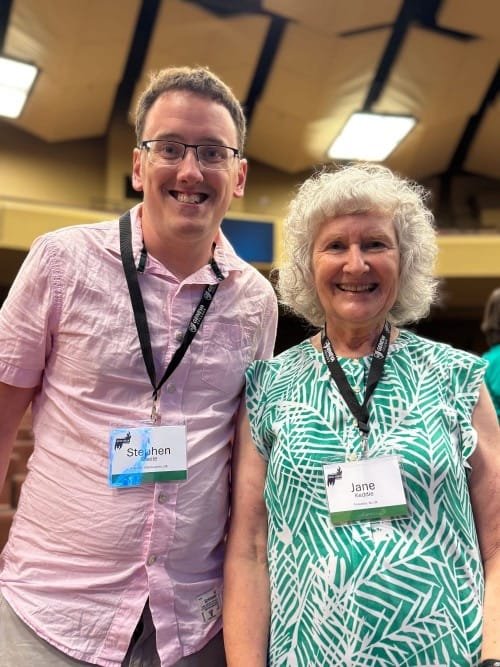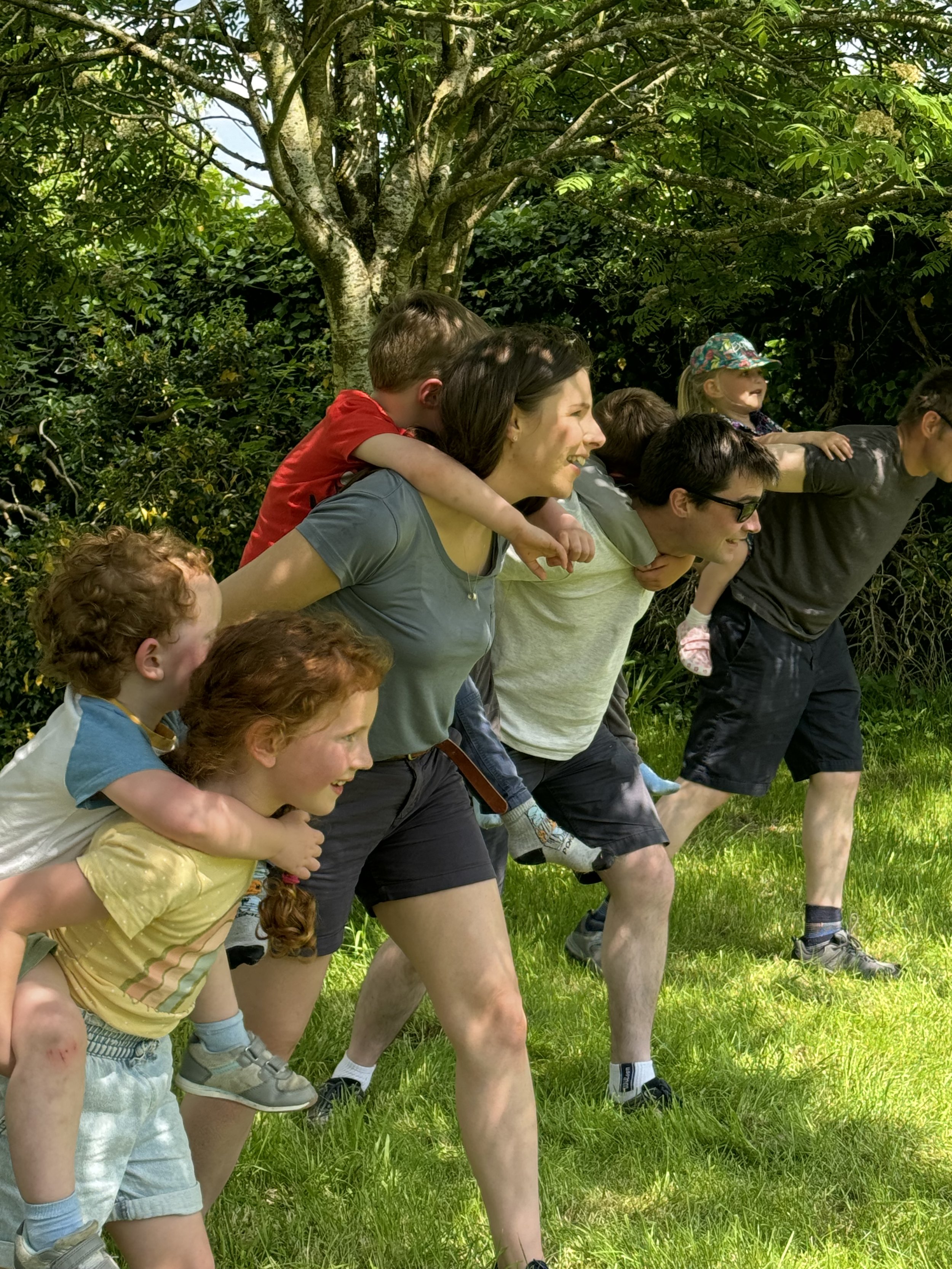If you knock on my door this month, the chances are that an American will open it. (And if you see my car being driven by someone who looks like they’ve never driven in the UK before…that’s why!). The reason is something known as a “Pulpit swap”. For the month of July an American pastor will be preaching in Stranraer – and I’ll be preaching in his church near Kansas City. We’ve each brought our families with us, and swapped cars as well as houses and pulpits.
Although the church denomination in which I minister is small in Scotland, it is the mother church of congregations in the United States, Canada, Australia, Ireland, France, Spain, Japan, India, Pakistan, Sudan, the Gambia – and another country which is never mentioned in print because of security concerns. In the last couple of years in Stranraer we’ve had visiting preachers from Reformed Presbyterian Churches in the US and Japan. A few weeks ago, we heard from a man who spent twenty years ministering in France. As part of this current trip, our family also had the opportunity to attend the RP International Conference (normally held every four years; this was the first for eight due to Covid). We joined around 1600 other delegates and had opportunities to hear updates from some of the countries mentioned above. I also had the opportunity to speak to around 200 people about needs and opportunities here in Scotland.
Pictured with the widow of an American pastor who did two 'stated supply' periods in my home congregation in Ireland when we were without a pastor
Such global interaction is nothing new. In 1789 Rev. James Reid, pastor for the whole region of Wigtownshire and beyond, travelled to America, visited and organised Covenanter congregations from New York down to South Carolina, before returning home to Scotland almost a year later. He brought with him an invitation for either himself or any of his fellow ministers to move permanently. (They all declined!). In the next century, Stoneykirk man William Milroy became the first Scottish Reformed Presbyterian minister to train for the ministry in North America. He studied at the university of Toronto, before being ‘licensed’ by the RP Presbytery of Pittsburgh in 1861, immediately returning home to become minister of Penpont, near Dumfries.
What are the benefits of such interactions? There are too many to name – but they go beyond simply experiencing (and having our children experience) different places and cultures. One of the things that I’ve found most striking about meeting Christians from around the world is how much we have in common. That has been the case in Sri Lanka (where I preached in 2014 with an interpreter translating into Tamil), the States, and everywhere in between. The last book of the Bible pictures those in heaven as ‘a great multitude that no one could number, from every nation, from all tribes and peoples and languages’ (Revelation 7:9). Such interactions are a reminder of where we’re heading. (This also applies across history. Two of the Biblical interpreters that I turn to most often in my study in Stranraer are a fourth century North African (Saint Augustine), and a sixteenth century Frenchman (John Calvin)).
Another pastor's widow - with ministry experience in the RPCS and RPCNA
I would go as far as to argue that Christianity is a global movement in a way other religions aren’t: it has no holy land to which one must make pilgrimages, no holy language that the most devout must learn. The history of the spread of Christianity also refutes the vague notion many have that some church council at some point in the past added or removed stuff from the Bible. From the very beginning, Christianity was spreading and the Scriptures were being translated into the languages of the people they reached. Even if there had been a desire to change the message, there was no opportunity to do so.
Another benefit from such interactions is a reminder that there is more going on around the world than we realise. The decline of Christianity in Scotland has been well publicised. Taking a big picture view reminds us that that’s not the case everywhere.
So – if you happen to bump into the American family in question – that’s a bit of the background as to why they’re here. I’m sure they will receive a warm welcome in Stranraer. And if you want to hear a familiar message preached in an unfamiliar accent, they would be delighted to see you at church. Despite various outward differences, the message is the same around the world. It is a message that transcends time and cultural differences – because it is about “Jesus Christ, the same yesterday, today and forever” (Hebrews 7:8).
Published in the Stranraer & Wigtownshire Free Press, 11th July 2024.
















